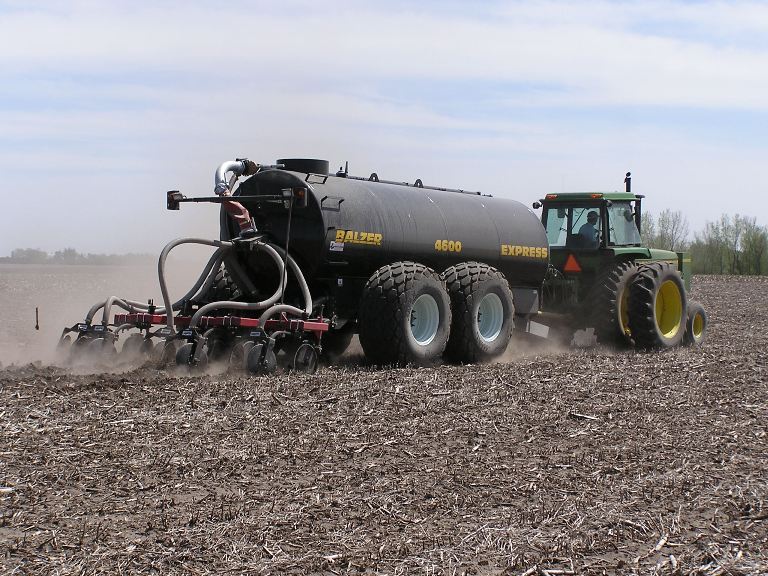Manure Calculator
With uncertain markets and narrow margins, producers become motivated to make the most of all resources — including manure, according to University of Minnesota Extension economist William Lazarus, Extension educator Jose Hernandez and Extension educator Les Everett.

With uncertain markets and narrow margins, producers become motivated to make the most of all resources — including manure, according to University of Minnesota Extension economist William Lazarus, Extension educator Jose Hernandez and Extension educator Les Everett.
Escalation in the price of commercial fertilizer since 2009 has also heightened interest in the use of livestock manure for supplying crop nutrients and has greatly increased the value of manure as a nutrient source, they suggest.
More recently, that interest has led producers to consider the contribution of manure value to cash flow in budgets. Producers are also seeking an appropriate market value in manure contracts with crop producers.
For their part, crop farmers are seeking to acquire manure as a major nutrient source, either by purchasing it from a livestock producer or by adding a swine finishing operation.
But establishing the value of manure can be tricky. Unlike commercial fertilizer, where producers pay for nutrients, with manure, farmers often acquire nutrients by paying for the cost of application.
Commercial fertilizer supplies the amount and ratio of nutrients that producers request. With manure, producers receive the amount and ratio of nutrients that it contains, complicating the determination of value.
They explain: “Even when a rate that supplies the correct amount of nitrogen is applied, the amount of phosphorus and potash applied may not match what you would have purchased commercially, and amounts applied above crop needs probably have no value.”
In the past, manure application costs often exceeded the value of the nutrients applied, whereas now, it’s common for the nutrient value in the manure to exceed the cost of application.
To assist in determining what manure is worth, Lazarus developed a Web-based calculator, http://z.umn.edu/manurevalue, that can be used to compare the economic value of manure from alternative application rates and methods. The value is based on crop nutrient needs for a specific field and crop rotation, fertilizer prices, manure hauling costs, manure type and application method.
Lazarus says the calculator is useful in budgeting new facilities or evaluating contract production by estimating the effect of manure and manure management on cash flow.
The calculations can also help crop and livestock producers estimate the value of manure that may be transferred or sold from one entity to another.
To learn more about manure economics, visit http://z.umn.edu/manure
worth.
Funding for development of this calculator was provided by the Minnesota Pollution Control Agency.
About the Author(s)
You May Also Like





